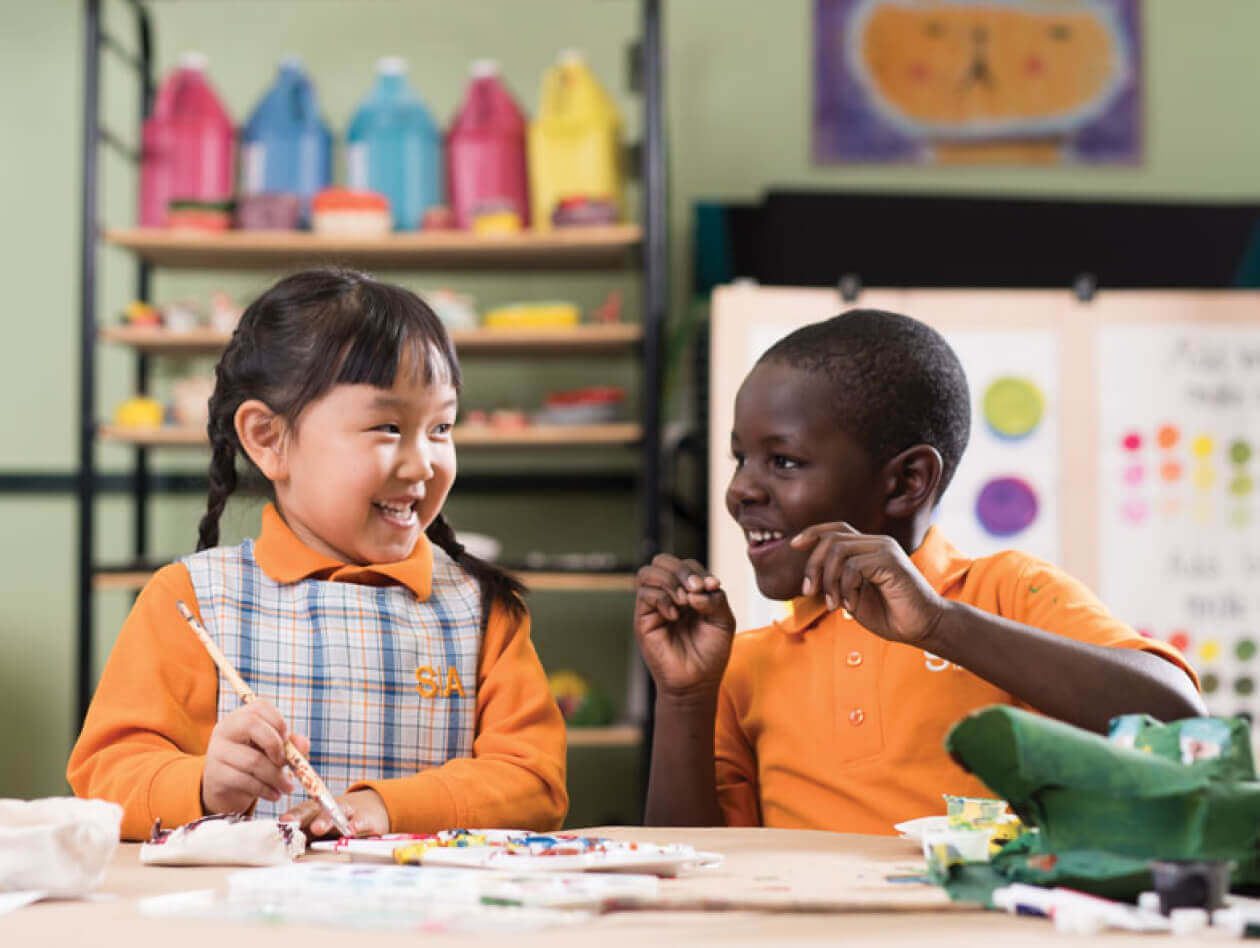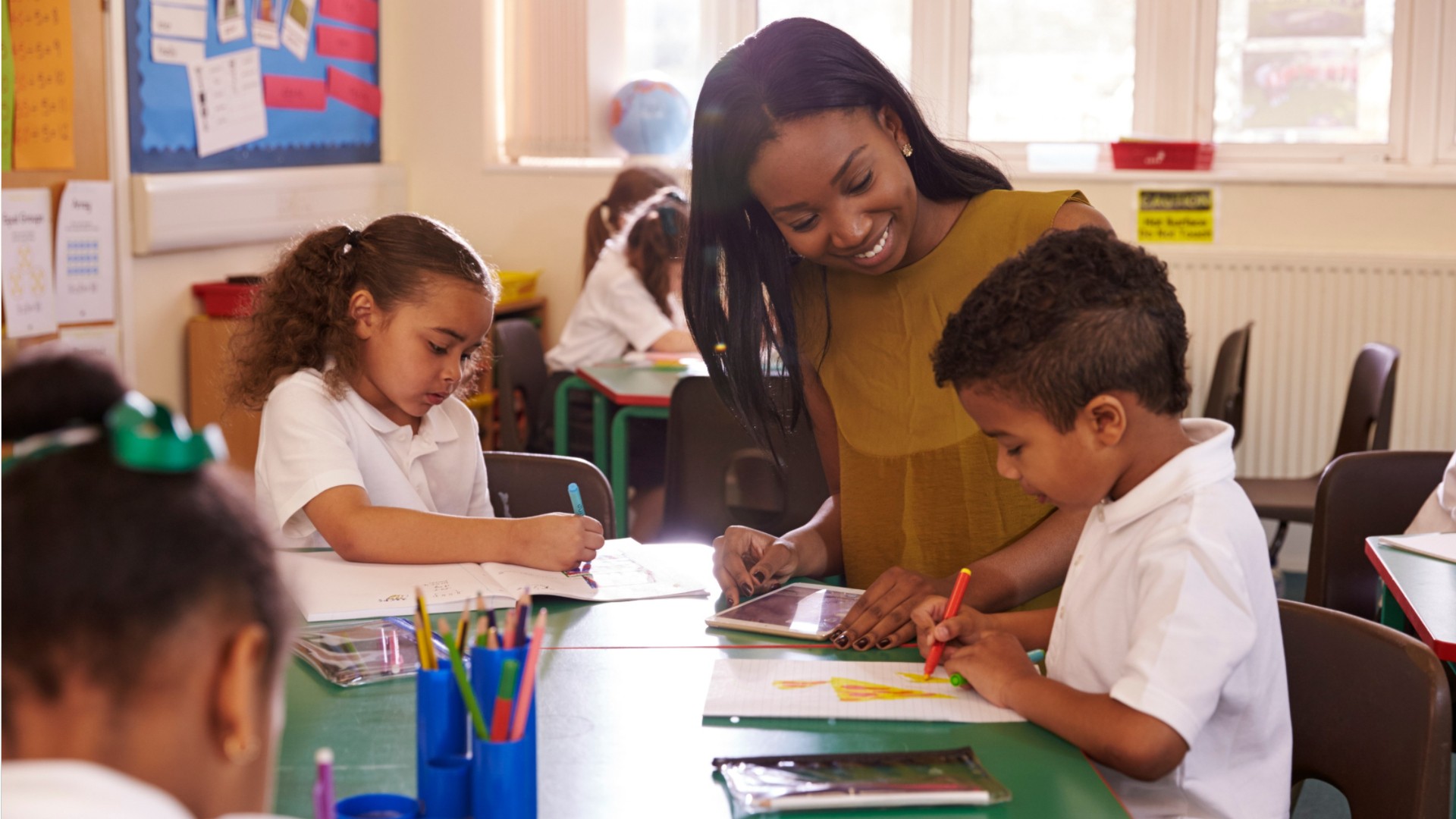Ways Kindergarten helps children adjust to Grade School
Wiki Article
Imaginative Learning Activities in Kindergarten: Enhancing Abilities With Play and Communication
Creative discovering tasks in preschool act as fundamental experiences for young learners (Grade School). These activities motivate skill growth via playful engagement and social communication. Children explore their creativity, boost interaction, and learn useful social skills. Each experience contributes to their growth in distinct methods. Recognizing just how these activities form early growth reveals the profound influence of play in education and learning. What certain components make these experiences so effective in nurturing well-rounded people?The Function of Play in Early Childhood Advancement
While several may undervalue the value of play, it works as a fundamental element of early youth advancement. With play, youngsters discover their environments, foster social skills, and establish cognitive capacities. Participating in unstructured tasks allows them to use their creative imagination, experiment with analytical, and boost their crucial reasoning abilities. Play provides a safe area for psychological expression, making it possible for kids to browse their feelings and build resilience.Additionally, play urges physical growth as children participate in tasks that enhance their motor abilities and sychronisation. Communication with peers during play advertises team effort and interaction, laying the foundation for future connections. Grade School. Educators and moms and dads recognize that play is not just an activity however an essential facet of understanding, forming a kid's ability to adapt and thrive in various situations. Ultimately, play improves children's lives, preparing them for the difficulties of the future while promoting a lifelong love for discovering
Imaginative Arts and Crafts: Triggering Creative Imagination
Imaginative arts and crafts play a considerable function in sparking children's creative imaginations and enhancing their creative skills. These tasks urge self-expression via numerous mediums, such as painting, drawing, and sculpting. By involving in hands-on projects, kids discover to manipulate materials, promoting great motor abilities and hand-eye coordination.In addition, imaginative arts supply a platform for vital and analytical thinking, as kids discover different methods and strategies to their productions. This expedition enables them to experiment, make choices, and gain from their experiences.
Collaboration is one more essential aspect, as kids usually collaborate on team jobs, sharing concepts and sources. This interaction not only builds social skills but additionally supports a sense of community. Inevitably, imaginative arts and crafts work as important devices in a kindergarten setting, promoting cognitive, psychological, and social growth while triggering the inherent inquisitiveness and imagination of young learners.
Interactive Narration: Building Language Abilities
Interactive storytelling acts as a powerful device for developing language abilities in kids, as it engages them in the narrative process and encourages active engagement. With narration sessions, kids are invited to pay attention, respond, and even add to the unfolding story. This interactive style nurtures vocabulary development by exposing them to new words in context.As they participate, kids exercise crucial interaction skills, such as expression and expression. They learn to sequence occasions, identify characters, and comprehend the story, promoting important reasoning. Additionally, interactive narration commonly includes aesthetic help, audio results, and props, which additionally improve engagement and understanding.
In addition, when youngsters share their own stories, they experience a sense of firm and creativity, strengthening their language skills in a helpful atmosphere. Ultimately, interactive narration cultivates a love for language and literary works, setting a solid structure for their future academic success.
Hands-On Science Experiments: Encouraging Questions
Hands-on science experiments provide young learners with important opportunities to check out and ask concerning the globe around them. Taking part in straightforward, interactive experiments allows kindergarteners to ask questions, make predictions, and observe outcomes firsthand. These activities boost inquisitiveness and promote a feeling of marvel, motivating children to check out the residential or commercial properties of materials, responses, and all-natural phenomena.Experiments such as planting seeds or mixing baking soda and vinegar not only illustrate clinical concepts yet additionally improve crucial thinking abilities. Youngsters discover to record their monitorings, promoting proficiency and numeracy as they gauge, contrast, and record information. Additionally, hands-on scientific research cultivates a development frame of mind, teaching resilience as they browse challenges and gain from errors.

Collaborative Games: Promoting Teamwork and Social Skills
Taking part in collective video games provides kindergarteners a distinct platform to develop synergy and social abilities while developing on the inquiry-based knowing cultivated by hands-on scientific research experiments (Kindergarten). These games motivate children to interact towards typical goals, promoting interaction and cooperation. As they browse different challenges, they discover to share obligations, bargain functions, and resolve disputes-- crucial components of effective team effortVia organized tasks such check this site out as group problems, relay races, or cooperative storytelling, youngsters not only boost their social interactions however also strengthen their psychological intelligence. They acquire insights right into empathy and assistance, learning that each child's payment is important. In addition, these joint experiences foster a feeling of neighborhood within the classroom, creating bonds that extend past individual play. By incorporating collective video games right into the educational program, teachers can lay the foundation for necessary life skills that will profit kids in their future educational and social environments.
Regularly Asked Inquiries
Just How Can Parents Assistance Creative Discovering at Home?
Moms and dads can sustain innovative discovering in your home by supplying varied materials, motivating exploration, engaging in imaginative play, asking flexible questions, and promoting a risk-free environment where youngsters really feel cost-free to express their ideas and creative thinking.
What Products Are Best for Arts and Crafts Activities?
A variety of products improve arts and crafts tasks, including construction paper, scissors, adhesive, markers, paints, and recycled items. These sources influence creative thinking and permit kids to explore their creativity with hands-on experiences.Exactly How Do Educators Assess Kid's Imagination?
Teachers assess kids's imagination through observations, portfolios of work, and flexible jobs that motivate self-expression. They examine analytic abilities, creativity, and willingness to experiment, providing understandings right into each child's one-of-a-kind creative growth and capacities.What Are Some Instances of Outdoor Creative Activities?

Exactly How Can Social Styles Be Integrated Into Creative Discovering?
Cultural styles can be incorporated into imaginative discovering by including varied tales, songs, art, and traditions, encouraging youngsters to explore and celebrate different histories, fostering inclusivity and understanding while boosting their creative thinking and cognitive skills.Children explore their creativity, boost communication, and learn important social skills. Through play, kids explore their find out here now settings, foster social skills, and create cognitive capacities. Furthermore, play urges physical growth as children engage in activities that enhance their electric motor skills and sychronisation. Imaginative arts and crafts play a considerable duty in sparking children's creative imaginations and improving their creative abilities. Interactive narration offers as an effective tool for constructing language skills in young kids, as it involves them in the narrative procedure and motivates active involvement.
Report this wiki page